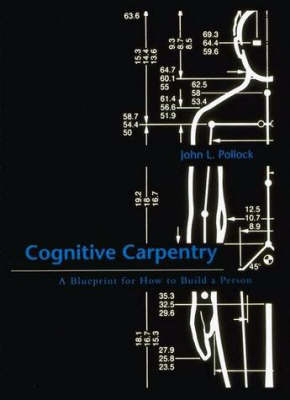
Cognitive Carpentry
A Blueprint for How to Build a Person
Seiten
1995
MIT Press (Verlag)
978-0-262-16152-7 (ISBN)
MIT Press (Verlag)
978-0-262-16152-7 (ISBN)
- Titel ist leider vergriffen;
keine Neuauflage - Artikel merken
This text argues that progress in artificial intelligence has stalled because of its creators' reliance upon unformulated intuitions about rationality. Underlying the book's thesis is a conviction that the tenets of AI and those of philosophy can be complementary and mutually beneficial to each.
A sequel to the author's "How to Build a Person", this work builds upon that theoretical groundwork for the implementation of rationality through artificial intelligence. It argues that progress in AI has stalled because of its creators' reliance upon unformulated intuitions about rationality. Instead, the author bases the OSCAR architecture upon an explicit philosophical theory of rationality, encompassing principles of practical cognition, epistemic cognition and defeasible reasoning. One of the results is the first automated defeasible reasoner capable of reasoning in a rich, logical environment. Underlying the book's thesis is a conviction that the tenets of artificial intelligence and those of philosophy can be complementary and mutually beneficial to each. And, while members of both camps have in recent years grown sceptical of the very possibility of "symbol processing" AI, this book establishes that such an approach to AI can be successful.
A sequel to the author's "How to Build a Person", this work builds upon that theoretical groundwork for the implementation of rationality through artificial intelligence. It argues that progress in AI has stalled because of its creators' reliance upon unformulated intuitions about rationality. Instead, the author bases the OSCAR architecture upon an explicit philosophical theory of rationality, encompassing principles of practical cognition, epistemic cognition and defeasible reasoning. One of the results is the first automated defeasible reasoner capable of reasoning in a rich, logical environment. Underlying the book's thesis is a conviction that the tenets of artificial intelligence and those of philosophy can be complementary and mutually beneficial to each. And, while members of both camps have in recent years grown sceptical of the very possibility of "symbol processing" AI, this book establishes that such an approach to AI can be successful.
Rational agents; epistemology from the design stance; the structure of defeasible reasoning; an architecture for epistemic cognition; plan-based practical reasoning; the logical structure of plans; an architecture for planning; acting; OSCAR.
| Erscheint lt. Verlag | 5.6.1995 |
|---|---|
| Zusatzinfo | 50 |
| Verlagsort | Cambridge, Mass. |
| Sprache | englisch |
| Maße | 152 x 229 mm |
| Gewicht | 635 g |
| Themenwelt | Geisteswissenschaften ► Philosophie ► Erkenntnistheorie / Wissenschaftstheorie |
| Geisteswissenschaften ► Psychologie ► Allgemeine Psychologie | |
| Geisteswissenschaften ► Psychologie ► Verhaltenstherapie | |
| Informatik ► Theorie / Studium ► Künstliche Intelligenz / Robotik | |
| ISBN-10 | 0-262-16152-4 / 0262161524 |
| ISBN-13 | 978-0-262-16152-7 / 9780262161527 |
| Zustand | Neuware |
| Haben Sie eine Frage zum Produkt? |
Mehr entdecken
aus dem Bereich
aus dem Bereich
Buch | Softcover (2024)
REDLINE (Verlag)
20,00 €
Eine kurze Geschichte der Informationsnetzwerke von der Steinzeit bis …
Buch | Hardcover (2024)
Penguin (Verlag)
28,00 €


